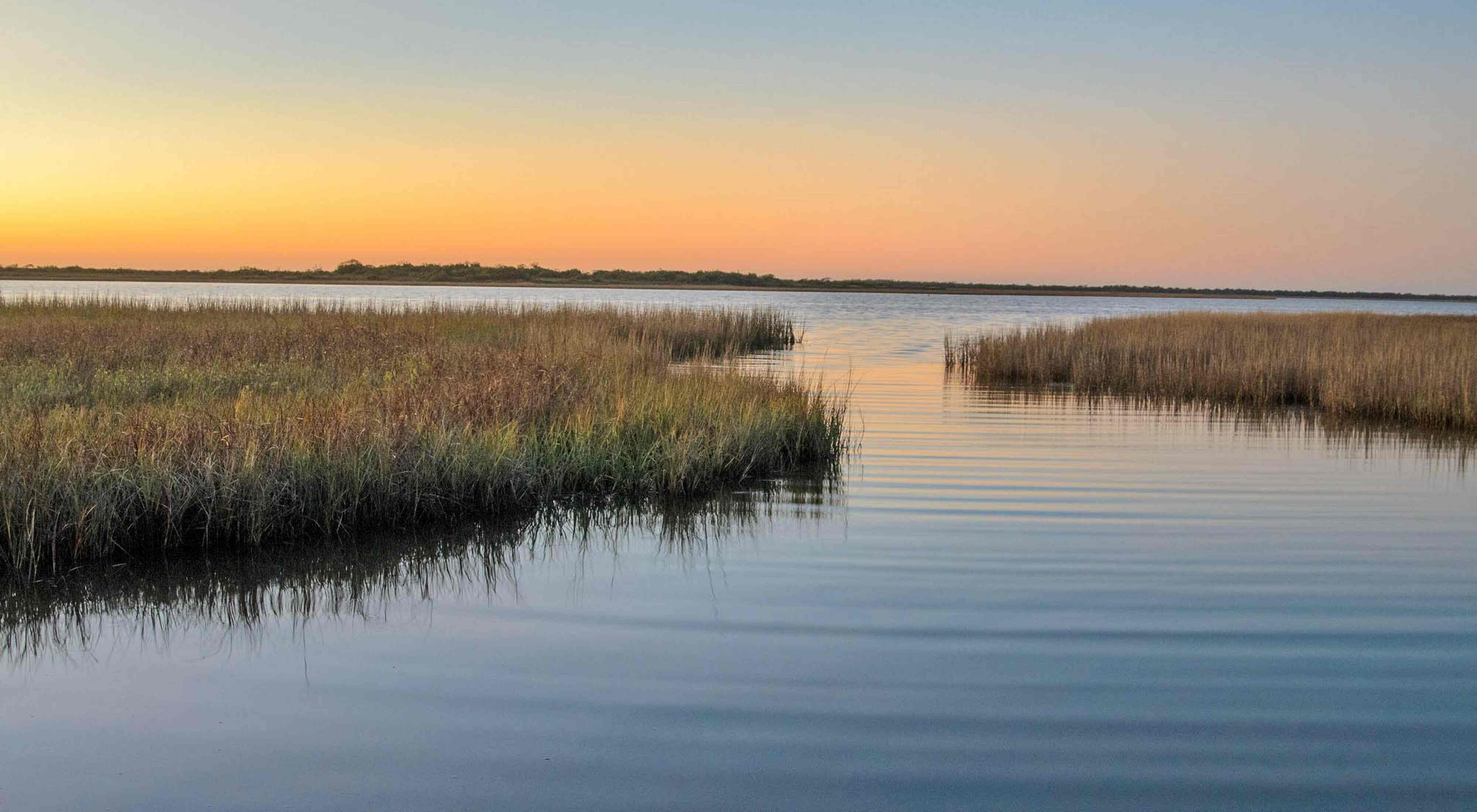
Welcome to the fascinating world of marshes! These unique wetland ecosystems hold a wealth of intriguing facts and natural wonders. Whether you’re a nature enthusiast, an avid adventurer, or someone curious about the diversity of our planet, marshes offer endless opportunities for discovery.
Characterized by their waterlogged soils and lush vegetation, marshes are found all over the world, from coastal areas to inland regions. They serve as vital habitats for a wide array of plants and animals, playing essential roles in maintaining ecosystem balance and providing various ecological services.
In this article, we will delve into 20 intriguing facts about marshes. From their importance in mitigating climate change to the unique species that call them home, prepare to be amazed by the wonders of these enchanting wetlands.
Key Takeaways:
- Marshes are vital ecosystems that filter pollutants, provide habitat for wildlife, and act as natural flood buffers. They also offer recreational opportunities like birdwatching and kayaking, making them remarkable natural wonders.
- Marshes are diverse wetlands found near bodies of water, supporting unique plant and animal species. They help purify water, store carbon, and protect shorelines, showcasing their immense ecological importance and beauty.
Marshes are wetland areas.
A marsh is a type of wetland characterized by the presence of waterlogged soils and a variety of water-loving plants.
They are often found at the edge of lakes, rivers, and oceans.
Marshes typically occur in low-lying areas near bodies of water, where water flows in and out, creating a dynamic balance.
Marsh vegetation helps in filtering pollutants.
The dense vegetation in marshes acts as a natural filter, trapping sediments and absorbing excess nutrients, contributing to water purification.
They provide habitat for a wide range of wildlife.
Marshes are home to numerous species of birds, fish, amphibians, insects, and mammals, which rely on these habitats for food, breeding, and shelter.
Marshes are excellent carbon sinks.
The dense vegetation in marshes absorbs and stores large amounts of carbon dioxide from the atmosphere, helping to mitigate climate change.
They act as natural flood buffers.
The water-absorbing capabilities of marshes help to reduce flooding by acting as natural sponges, absorbing excess water during heavy rainfall or storm events.
Marshes are a popular destination for birdwatching.
Due to their rich biodiversity, marshes attract birdwatchers who come to observe and study various species of waterfowl and shorebirds.
Marshes provide important spawning grounds for fish.
Many fish species rely on marshes as spawning grounds, offering shelter and ample food resources for their young.
They are often associated with unique plant species.
Marshes are known for their distinct vegetation, including cattails, reeds, sedges, and various types of grasses that have adapted to wet conditions.
Marshes act as natural water purifiers.
The combination of vegetation, microbes, and physical processes in marshes helps to remove pollutants and improve water quality.
Marshes are an essential part of the water cycle.
They facilitate the storage and slow release of water, ensuring a steady supply of water during dry periods.
Marshes can be freshwater or saltwater.
Depending on their location and proximity to the sea, marshes can either be freshwater or saltwater, creating unique ecosystems with specific adaptations.
They are highly productive ecosystems.
Marshes support a high level of primary productivity due to the nutrient-rich soils and ample sunlight available for photosynthesis.
Marshes play a crucial role in shoreline protection.
The dense vegetation of marshes helps to stabilize and protect shorelines from erosion caused by water currents and wave action.
Marshes are important for waterfowl hunting.
Many hunters rely on marshes as prime hunting grounds for waterfowl such as ducks and geese during hunting seasons.
Marshes have cultural significance.
Throughout history, marshes have held cultural significance in different societies, often depicted in art, literature, and folklore.
The Everglades in Florida is the largest marsh in the United States.
Stretching across 1.5 million acres, the Everglades is a vast marshland ecosystem rich in biodiversity.
Some marshes are considered hotspots for rare and endangered species.
Due to their unique ecological characteristics, certain marshes are home to rare and endangered species that rely on these habitats for survival.
Marshes can be used for eco-friendly wastewater treatment.
In some areas, marshes are utilized as wastewater treatment systems, allowing natural processes to purify and filter the water.
Marshes provide recreational opportunities.
From hiking and birdwatching to kayaking and nature photography, marshes offer countless recreational activities for outdoor enthusiasts.
These 20 intriguing facts about marshes highlight the immense ecological importance and beauty of these wetland ecosystems. Whether you’re exploring the unique flora and fauna or appreciating the valuable ecological services they provide, marshes are truly remarkable natural wonders.
Conclusion
In conclusion, marshes are fascinating ecosystems that play a crucial role in our planet’s biodiversity. From their unique plant and animal species to their vital contributions to water filtration and flood control, marshes are truly remarkable. They provide a haven for migratory birds, recreational opportunities for humans, and serve as a natural buffer against coastal erosion.Exploring marshes can be an enriching experience, allowing us to witness the intricacies of nature’s design and understand the delicate balance of life. These wetlands are not only visually captivating but also hold immense environmental significance.From their formation and importance to their diverse flora and fauna, marshes teach us about the beauty and complexity of our natural world. By conserving and protecting these valuable habitats, we ensure the preservation of countless living organisms and maintain the health of our planet.Next time you come across a marsh, take a moment to appreciate the wonders it holds. Whether it’s the soothing sound of tranquil waters or the sight of vibrant marsh grasses swaying in the breeze, these wetlands deserve our admiration and respect.
FAQs
Q: What exactly is a marsh?
A: A marsh is a type of wetland often characterized by shallow water, soft mud, and an abundance of grasses and reeds.
Q: What is the difference between a marsh and a swamp?
A: While both marshes and swamps are wetland ecosystems, swamps are dominated by trees and shrubs, whereas marshes primarily consist of grasses and reeds.
Q: Do marshes serve any ecological purpose?
A: Yes, marshes are critical for water filtration, flood control, and shoreline stabilization. They serve as nurseries for many diverse aquatic species and provide habitat for migratory birds.
Q: Are marshes found worldwide?
A: Yes, marshes can be found all over the world, from the coastal regions to the interiors of continents. However, not all marshes are the same; they can vary in terms of salinity, size, and vegetation.
Q: Can marshes be threatened or damaged?
A: Yes, marshes are vulnerable to habitat destruction, pollution, and climate change. It’s crucial to protect and conserve these valuable ecosystems to maintain their ecological functions and the species that depend on them.
Hungry for more marsh knowledge? Satisfy your curiosity by exploring salt marsh facts, where you'll learn about the unique adaptations of plants and animals in this brackish environment. Next, dive into the world of marsh grass, a vital component of these ecosystems that provides food and shelter for countless species. Finally, take a virtual trip to marsh lakes, where you'll be amazed by the incredible biodiversity and ecological importance of these wetland wonders.
Was this page helpful?
Our commitment to delivering trustworthy and engaging content is at the heart of what we do. Each fact on our site is contributed by real users like you, bringing a wealth of diverse insights and information. To ensure the highest standards of accuracy and reliability, our dedicated editors meticulously review each submission. This process guarantees that the facts we share are not only fascinating but also credible. Trust in our commitment to quality and authenticity as you explore and learn with us.


